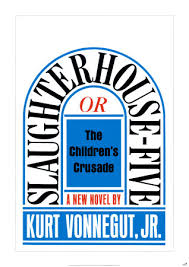 My reading life began almost by accident one summer when I was a young corporal in the Army.
My reading life began almost by accident one summer when I was a young corporal in the Army.
I’d avoided going to university right out of high school, and after a year drudging in a factory I’d enlisted out of ennui—maybe the Army would make a man out of me.
But my first foray into reading was decidedly trashy: deadly gunslingers, some true crime, or sexy spies. Still, for the Army it was pretty highbrow, as most of my buddies were crotch-deep in the paperback porn that dominated their reading lists.
Then, while home on leave, an old high school buddy just finishing at Boston College tossed three paperbacks my way and said, “Try these.” I packed them in my duffel, and there they lay until I was in Wisconsin later that summer training with the National Guard—the best gig I ever had as the Weekend Warriors tended to bring as much cold beer as military hardware on maneuvers.
But with plenty of time to kill, I picked up the first of my friend’s books—and right there, lying on my bunk in Wisconsin, the world turned upside down.
The books, in the order I read them, were: Dee Brown’s history Bury My Heart at Wounded Knee, John Steinbeck’s The Grapes of Wrath, and Kurt Vonnegut’s Slaughterhouse-Five.
How many metaphors can I conjure to describe the transformation those books had on me? A switch in my mind—that I never knew existed—was turned on. A window flew open where before there had been a wall. A map unfolded to new lands I’d never known existed, and not only were there no monsters there, space was infinite!
Brown’s history revealed that there was far more to the country I was at that moment serving than had been served up in Mr. Johnston’s history class. Grapes of Wrath, combined with Brown, was the beginning of a political consciousness in a youth who was vaguely liberal but did not know why.
But it was Slaughterhouse-Five that set me on the road to a writer’s life. As I write this, I recall clearly lying back on my bunk as the pages flew by toward the end of the novel. And when finished, I just lay there—thrilled yet baffled by the idea that something else beyond story was going on in that book. I didn’t know what, but I knew I’d discovered something vital to me, something I had not been searching for. A mystery, really: What was this alchemy that stirred something in my soul beyond plot and character?
end of the novel. And when finished, I just lay there—thrilled yet baffled by the idea that something else beyond story was going on in that book. I didn’t know what, but I knew I’d discovered something vital to me, something I had not been searching for. A mystery, really: What was this alchemy that stirred something in my soul beyond plot and character?
It took many years—too many!—to uncover all that. But the next day I was writing to admissions offices back in Massachusetts. And I read all of Vonnegut while waiting to hear back. And all of Steinbeck before I got to UMass Amherst for my first semester.
I’d known right away that the Army was no life I wanted, and it never did make a man out of me.
But Kurt Vonnegut did.


